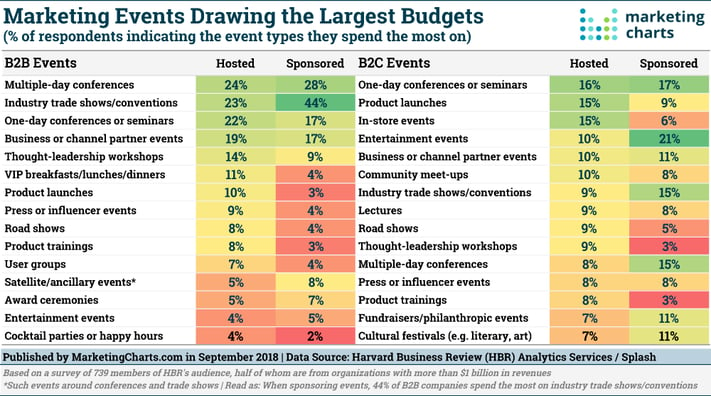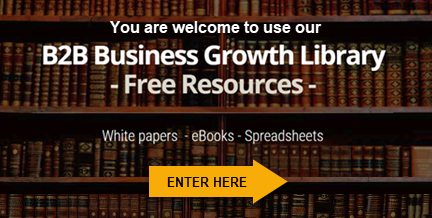
I'm not the smartest fellow in the world, but I can sure pick smart colleagues.” - Franklin D. Roosevelt
Some have referred to September as the “New January.” They consider it a time to make good on resolutions. For that reason, I think this is good to use this season of change to focus on goals, and to realize this year’s potential before you again sing "Auld Lang Syne" for the new year.
It may seem more difficult for an expert, after decades of success, to ‘raise the bar,’ ‘achieve a personal best,’ ‘learn something new,’ or set new goals to excel. Especially for someone who has ‘seen it all.’ Investing time in education paid off in the early years, but 20 years later there are fewer resources or people who can be trusted to provide valuable new insights. As a result, it appears to me that a personal/professional skills plateau is reached, even as better results are demanded.
Carol Dweck: “Many people have told me that when they were promoted to a prestigious position, they suddenly felt, now I have to have all the answers. Now, my period of growth is over. I have to be a fully mature person who knows everything. So yes, at any point, you can fall into that trap. People who become CEOs suddenly feel they have to be gods goddesses, and not people who say, gee; I don’t know. Let’s talk about it. Let’s think about it. Let’s feel our way through this problem.” - Source: Great article/interview on Harvard Business Review
When does personal development become a factor? I believe more than ever that an improvement in revenue and profits also relies on developing the skills and wisdom of the team and leaders.
The habits and mindsets that created success up to this point are not likely to be enough to create future revenue growth strategies. Future success will require more than additional industry knowledge. Better discipline, improved listening skills, courage, etc. are needed. Each year it gets more difficult to challenge yourself and your team and I have noticed ‘following the crowd’ becomes something to avoid.
Tomorrow you may be required to pitch a new product, propose a process improvement, or seek funds. To do so, you need to have the skills to:
- Align your business need with strategic goals
- Analyze risks and opportunities
- Calculate ROI
- Tell stakeholders a compelling story
- Secure the resources you need
How do you stay at the top of your game, how do you keep learning when you have become "the expert”?
Companies are investing more into events such conferences and tradeshows.
A new Splash-sponsored survey from Harvard Business Review (HBR) Analytics Services shows that B2B respondents are allocating 29% of their budgets to events. This investment into events is about companies hoping to grow revenue and ROI. Since 4 in 10 plan to spend more on hosting events in the next year, and 3 in 10 will spend more sponsoring events, there will be more visibility and availability than in prior years. They are an attractive option to learn more and fill the knowledge gap.
Source: Marketing Charts
How, when and where does an expert “sharpen the saw” for their professional development? What are the choices for experts? What provides real value to accelerate progress?
Books are priceless
...but there are limitations and time is precious.
- Here is a list of my top recommended books every leader who is responsible for growing revenue should have in their library. This list includes books focused on sales, marketing, leadership, and personal development.
- Bill Gates reads 50 books a year.
Here is where you can read his reviews.
Bill Gates: “Even as my glasses have gotten smaller and hopefully cooler over the years, I am still a proud member of Nerd Nation. As such, I read a lot of books—usually more than 50 a year. Many of the books I review on Gates Notes are recent releases because I figure people are generally more interested in hearing about newer works. But I also like to revisit older books that feel especially important or relevant. Mindset: The New Psychology of Success (2006), by the Stanford psychologist Dr. Carol Dweck, is one of those books.”
- Source: https://www.gatesnotes.com/Books/Mindset-The-New-Psychology-of-Success
Classes or workshops
...offer opportunities, but again few want to risk taking the time. A half-day workshop can quickly turn into a ‘re-run’ for someone with high expertise. I am a fan of workshops, but using Eventbrite to randomly select a ‘revenue workshop’ is a little like playing the slots.
- CAMPS (Center for Advanced Manufacturing Puget Sound) does a great job of supporting local manufacturers and offers helpful workshops. You will find organizations which support the industry you serve best in your area. If there is a shortage of knowledge, you will still have an opportunity to make introductions and network.
Events and networking
If you are in the right room, the new introductions can be priceless. But it is neither automatic or easy.
- Here are the Pros & Cons of Business Networking - Waste of Time or a Gold Mine? If the primary objective is to gain the benefits of introductions (not knowledge), events and networking are a gold mine.
Membership or peer groups
Be cautious. If you attend a membership of people with titles, who are also on the hunt for new insights to ‘leap”, there may not be as much opportunity that appears on the surface. Organizations such as Vistage, TENS, Excell, or FEI can provide value and opportunity. They are not a ‘one-size-fits-all’ solution to fill knowledge gaps for everyone, but I have had the privilege of presenting at these organizations and talked to many members who found them extremely valuable.- I am a proud and happy member of CAMPS (Center for Advanced Manufacturing Puget Sound) which has offered priceless opportunities to meet new friends, customers and gain valuable knowledge about the needs of manufacturers. You will likely gain an advantage with a membership that supports those people and companies you serve best.
A professional coach
What should I expect from a professional coach? A professional coach can accelerate knowledge, wisdom, and results. There is also a warning flag: “Buyer Beware” Harvard Business Review conducted a survey of 140 leading coaches and invited five experts to comment on the findings. Read the comments here.
“Do companies and executives get value from their coaches? When we asked coaches to explain the healthy growth of their industry, they said that clients keep coming back because “coaching works.” Yet the survey results also suggest that the industry is fraught with conflicts of interest, blurry lines between what is the province of coaches and what should be left to mental health professionals, and sketchy mechanisms for monitoring the effectiveness of a coaching engagement.”
– Source: An excellent interview, infographic and article by Diane Coutu and Carol Kauffman
The survey asked the coaches what companies should look for when hiring a coach. Here’s how various qualifications stacked up.
Source: An article highly recommended on HBR “What Can Coaches Do for You?”
Seek out a Mentor
As the person who is expected to lead the change, the CEO or CXO will be tested by decisions and management situations not encountered in the past.
“Some 96% of executives view mentoring as an important development tool, according to Lois Zachary, author of The Mentor’s Guide: Facilitating Effective Learning Relationships.”
“There are lots of benefits to mentoring,” says Zachary. “A mentor can help connect you to other networks and can expose you to different ideas, different people that you otherwise would never have that opportunity for.” - Source: Fortune magazine, authored by KATHERINE REYNOLDS LEWIS
Hire experts
As Franklin D. Roosevelt said: “I can sure pick smart colleagues.” A recruiting strategy should include those who will “argue with you” and challenge your thinking. You may find this step-by-step guide helpful to build a revenue team.
Whatever you do in life, surround yourself with smart people who'll argue with you.”
- John Wooden
Experts learn from customers
Scheduling time to listen to customers is powerful. Time spent understanding their concerns, their rants, raves and what they appreciate helps a team to focus and be inspired.
By the way? There is no evidence that Henry Ford ever said those words:
If I had asked people what they wanted, they would have said faster horses.”
Carol Roth: “Often, customers know what they want, but don’t know how to articulate it. So, ask specific questions that allow you to glean insights to use for your innovation. For example, using multiple-choice questions (with an option for "other" and space to write in an answer) is a good way to survey your customers. Studies show that giving a customer too many choices often nets you poor feedback, but it's also important to give them the opportunity to bring up something you haven't anticipated.” - Source: Carol Roth on Entrepreneur.com
Or traveling to Italy
...sounds tempting? Will it provide the needed new idea or bit of wisdom? The story of how Howard Schultz visited Milan, Italy in 1983 on a business trip for the then-fledgling Starbucks is well known. He left Milan with a new idea and inspiration for Starbucks.
I have to say, I think this is a great plan!
First a quick Assessment!
But before making a decision, an assessment or evaluation is a must. Tools such as the Core Value Index assessment or a DISC personal assessment tool are invaluable. Be sure to take a moment to learn more and discover more about yourself, and your team:
“The Benefits of Using DISC Assessments to Grow Sales”
“The Core Values Index ™ (CVI) Assessment”
There is more to growing revenue than upgrading software, implementing new systems and training employees about the products and services. To improve a company revenue and profitability, the individuals within the organization need to improve as well. Even the experts have an opportunity to fill their knowledge gap. I hope the resources I shared with you today help to fill yours.



